

With the first tumultuous year of Donald Trump’s presidency winding down, Capital & Main looks back at the images and stories we presented over the last 12 months.


Click the right arrow button to go to the next slide.
This is an encore posting from our State of Inequality series
(Andy Warner’s comics have appeared in many places, including Slate, Medium, American Public Media, Symbolia, KQED, popsci.com and for the United Nations Refugee and Works Agency.)


Capital & Main: Do you see risk in Democrats running away from a populist progressive agenda?
Mayor Bill de Blasio: Absolutely. I think the biggest development we saw [in the midterm election] was Democrats not standing up for the ideals of the Democratic Party, not talking to the economic realities of our people, not being willing to offer real progressive solutions. I think there’s another model of Democrats who actually addressed these issues, who were willing to take on big corporations, who were willing to challenge the status quo, who were willing to ask those who are wealthy to pay their fair share, who were willing to talk about how we create living wage jobs and better benefits….
People are looking for answers to what is now a fundamental structural economic crisis. The middle class has been collapsing, people’s earning power has been declining rapidly…. I love that the conventional wisdom [about the recent election] is about a conservative tidal wave.
Dino Degrassi and Jason Campbell engage in dialogues for a living. They also put the electrical wiring into some of Los Angeles’ largest and most recognizable building projects. Every morning at 6:30 the two electricians ride the street level elevator down into the construction site at Wilshire and Figueroa, where the core of the Wilshire Grand hotel is emerging out of the ground. When finished, the 73-story building will be the tallest west of the Mississippi.
Degrassi is a seasoned journeyman – ostensibly a teacher of apprentices like Campbell who work their way through a five-year program, learning as they go.
Throughout the day, the men’s hard-earned craft knowledge guides their conversation. “I try to help Jason work efficiently,” Degrassi says, as he moves along a cement deck tying in conduit. “I want to make sure he paces himself and doesn’t get hurt.”
“There’s a lot of wisdom to be learned from Dino,
» Read more about: Let’s Talk – Socrates at the Wilshire Grand »


The latest sign that the nation’s 14-year romance with the for-profit cyber charter industry might be cooling came last week when the Board of Trustees for Pennsylvania’s scandal-plagued Agora Cyber Charter School discussed completely severing its relationship with K12 Inc., the nation’s largest for-profit cyber charter management and curriculum supplier.
The action came nearly three weeks after an August 5 vote by Agora’s board to not renew its management contract with the online learning giant beginning with the 2015-16 school year.
Agora had been the jewel of K12’s 29-state network of virtual charters, accounting for 14 percent of the company’s annual revenues of $848.2 million. So when news of the August 5 decision came to light during an August 14 K12 Fourth Quarter investor conference call, it sent K12’s high-performing stock into a nearly 13-point tailspin. The call-in’s moment of revelation can be heard here:
» Read more about: Cyber Charter School Revolt Against K12 Inc. Continues »


Large corporate lobbies have, in recent years, accelerated their push to expand private charter schools. America spends nearly three quarters of a trillion dollars on public education annually and companies such as “cyber-charter” giant, K12 Inc., Rupert Murdoch’s Amplify and Rocketship, a darling of the venture capital industry, see a pot of gold.
A new report by In the Public Interest Scholar Network member Gordon Lafer, for the Economic Policy Institute, examines recent proposals by Wisconsin state legislators to privatize schools, particularly in Milwaukee, and finds that the proposals won’t help poor kids.
How? The proposals call for public schools in the largest and poorest school district to be replaced with private charter schools that substitute online apps for teachers for a significant part of the day. This “blended learning” model primarily focuses on math, literacy and test preparation, while paying minimal attention to other subjects. Also, money earmarked for Milwaukee students is diverted to fund the company’s ambitious growth plans in other cities.
» Read more about: Privatized Education’s Smoke and Mirrors »


The nomination of Californian Ted Mitchell to the number two position at the U.S. Department of Education is the latest indication that proponents of school privatization are continuing to gain influence over the Obama administration’s education policy.
“He represents the quintessence of the privatization movement,” Diane Ravitch, an education historian and former Assistant Secretary of Education under President George H.W. Bush, tells Capital & Main. “This is a signal the Obama administration is committed to moving forward aggressively with transferring public funds to private hands.”
In education “privatization” refers to the contracting out of traditional public education services to for-profit companies or to charter schools that are set up as nonprofit organizations. In many ways, the Mitchell nomination reflects the ongoing battle being fought in Washington and in school districts across the country. It’s a battle that pits the views of teachers, their unions and community groups against a movement that is backed by wealthy philanthropists and corporations.
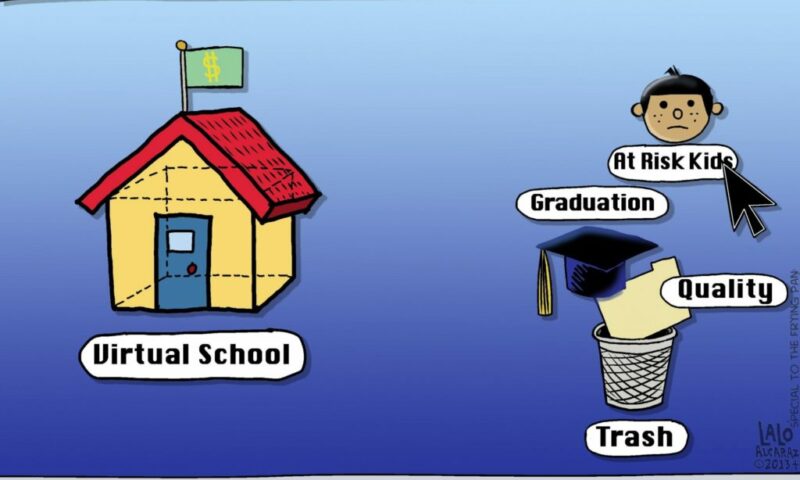

Sandy Hellebrand was concerned. She needed to find a school that could educate her son Gabriel, who has autism and was about to enter high school.
Hellebrand thought she had found the perfect solution: She would enroll Gabriel and her two younger children in Sky Mountain Charter School, one of a rapidly-growing number of virtual schools in California and across the country.
After all, she reasoned, the school would provide excellent online instructional materials and instructors to guide Gabriel’s individual needs. Since Sky Mountain is a publicly funded school – although not a traditional brick-and-mortar one – the state of California would pay for her children’s education. And Hellebrand and her husband Rob, a public high school teacher, would receive about $1,800 a year for each of their children to help defray their costs of educating them at home.
“The idea is fantastic,” she says in an interview with Frying Pan News.
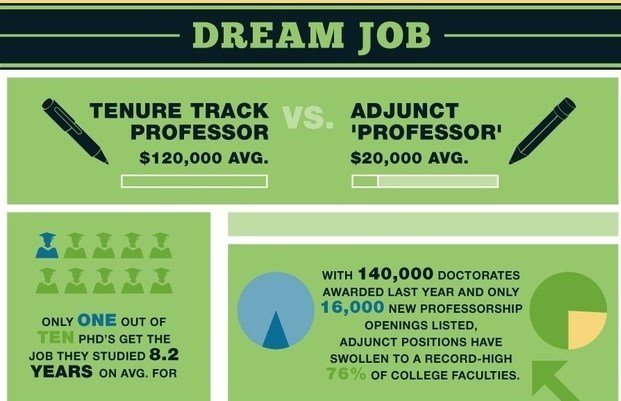

(See full infographic at OnlinePhdPrograms)
Driving a 15-year-old car 70 miles a day between three different college campuses took a toll on my ride – and on me. I was teaching as adjunct professor at three different L.A. community colleges. An adjunct is a part-time professor who is hired on a contractual basis rather than being given tenure and a permanent position. Many universities hire large numbers of adjunct faculty members because they are flexible and cheaper to maintain than traditional full-time faculty members.
I had no health insurance, no savings and no other financial resources, so every penny went to rent, car repairs and food. I was expected to hold office hours, but the colleges where I taught did not provide office space for adjuncts – I had nowhere to meet students or grade papers on campus.
» Read more about: Adjunct Faculty: Straddling the Poverty Line »


“Sometimes it seems that eliminating public education itself is the goal of this reform era,” Diane Ravitch told a cheering crowd of public school teachers and education activists who had packed Occidental College’s Thorne Hall Tuesday night.
The audience had come to hear the 75-year-old scholar, author and former Assistant Secretary of Education drive home her message that, contrary to the dire narrative now being sold to Americans by proponents of school privatization, the nation’s public education system is not broken.
Ravitch, who might have been mistaken for the latest college-radio rock sensation rather than the country’s preeminent critic of the education-reform movement, was here as part of a Los Angeles leg of a whirlwind tour to promote the publication of her latest book — and New York Times Best Seller— Reign of Error: The Hoax of the Privatization Movement and the Danger to America’s Public Schools (Knopf).
» Read more about: Diane Ravitch: Privatized Education Reform Is a Hoax »


Currently a Research Professor of Education at New York University, Diane Ravitch served as the Assistant Secretary of Education in the George H.W. Bush administration and later worked for Bill Clinton’s White House. A tireless critic of the public school testing standards she once endorsed, the 75-year-old Ravitch remains a clear voice against the stampede into publicly funded charter schools and other right-leaning education “reforms,” including No Child Left Behind and Race to the Top.
Her newest book is Reign of Error: The Hoax of the Privatization Movement and the Danger to America’s Public Schools. Tonight and tomorrow night she will speak at two Southland colleges as part of her book tour.
Tuesday, October 1, 7 p.m.
Thorne Hall. Occidental College
1600 Campus Road, Los Angeles
(323) 259-2991
Free.
Wednesday, October 2, 7 p.m.
Student Union,California State University
18111 Nordhoff St.,
» Read more about: Diane Ravitch Speaks at Two Southland Colleges »
Frying Pan News reviewer Vivian Rothstein called Go Public: A Day in the Life of an American School District “an antidote to the doom and gloom pronouncements of Waiting for Superman and other recent corporate-sponsored films.”
This documentary, created by Jim and Dawn O’Keeffe, memorably follows 50 individuals (students, faculty and others) during a single school day. Its filmmakers focus on Pasadena’s public school district as it struggles to head off catastrophic budget cuts to 28 schools. It’s a primer on the importance of public education and how successful it can be with the support of parents and administrators.
The film can be seen in three widely separate local venues this weekend. On Saturday it’s part of the Catalina Film Festival and screens 1-3 p.m. at the Lancer Auditorium in Avalon. Sunday, it shows at Pasadena’s Lake Avenue Church (1-3 p.m.) and at USC’s Ray Stark Family Theater (6-8 p.m.).
» Read more about: ‘Go Public’ School Documentary Screens This Weekend »
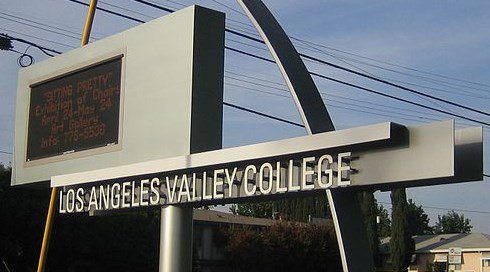
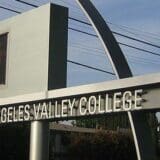
President Obama [has] released a plan to combat rising college costs and make college affordable for American families. The president’s plan outlines three proposals: tying federal student aid to college performance based on yet-to-be developed college rankings; promoting innovation and completion by instituting a college scorecard that would give consumers clear, transparent information on college performance to help them make the decisions that work best for them; and ensuring that student debt remains affordable by expanding eligibility for the Pay As You Earn repayment program. While this federal push is new, many of the ideas have already been tried and tested on the state level, and California’s community college system in particular provides some important data on what we should expect as these proposals are developed.
As a student who has attended community college and is attending a public university, I applaud President Obama for taking this step toward ensuring an affordable higher education for all.
» Read more about: California Community Colleges: Models for Curbing Costs »


Thursday’s community meeting in the auditorium of Boyle Heights’ Lorena Street Elementary School was ostensibly a Los Angeles Unified School District briefing on why the school was about to share half of its classrooms and campus resources with a charter school.
The players were right out of Central Casting. To one side of Lorena Elementary’s podium stood LAUSD principal Enrique Soberanes — a rumpled, embattled Jaime Escalante-esque embodiment of an inner-city public school educator.
Opposite Soberanes, standing tall and lean and tanned was the impeccably tailored Dr. Jim Kennedy, looking more a William Morris Endeavor agent than the incoming principal of Walton Family Foundation-backed Extera Public School No. 2, the new K-1 charter school being imposed on Lorena Street as a co-locator.
Facing the principals were roughly 75 bewildered, mostly Spanish-speaking and working class parents, their children and a score of frustrated and angry LAUSD teachers.
» Read more about: “Co-Location” Controversy in Boyle Heights »


Ever since the emergence of talking pictures, schools have been a major subject of both Hollywood movies and documentary films. One consistent theme of Hollywood portrayals of schools – from Blackboard Jungle (1955), Up the Down Staircase (1967) and Stand and Deliver (1988) to Mr. Holland’s Opus (1995), October Sky (1999) and Freedom Writers (2007) – has been the idealistic teacher fighting to serve his and her students against overwhelming odds, including uncaring administrators, cynical colleagues, a stultifying required curriculum that crushes the spirit of teachers and students alike, dilapidated conditions, budget cuts, unruly and hostile students, or students suffering from the symptoms of poverty or neglect. The underlying message is that while occasionally a rare teacher can light a spark in a few students, our public schools are failing most of the students they are supposed to serve. Most documentaries about education –
» Read more about: A Harsh Schooling: The War Against Public Education »
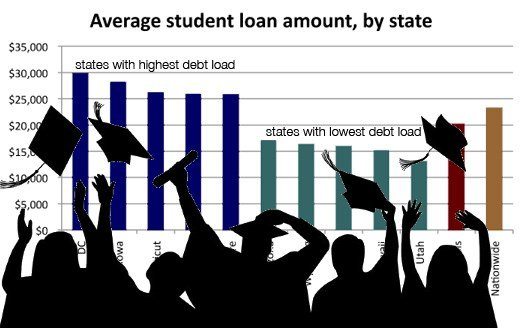

“Work hard. Get good grades. Go to a good school and you will be successful.” Our generation has been told time and again that through hard work and dedication, we will be able to live happy lives, have secure jobs, and start families built on comfortable finances. But on the day of action around student debt, it [was] clear we need more than these easy answers to help Millennials cope with the growing burden of education costs.
I come from a middle class family. Both of my parents served in the Marine Corps and got good jobs. My father works in law enforcement, and my mother is a teacher. They taught me that if I put in hard work, I would reap the results. So, I graduated at the top of my class in high school and went to a top (public) university. I worked all four years of college and graduated on time.
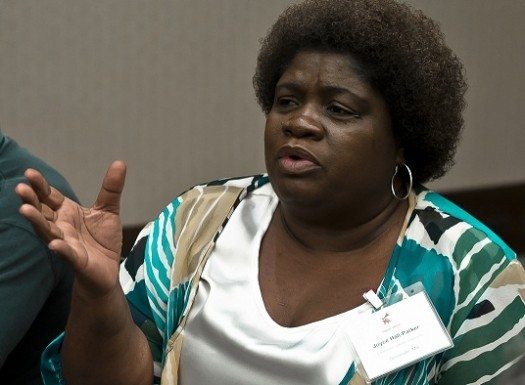

When it comes to schools and kids, progress might actually just involve a unified push from everyone in a community – no matter how hard it looks.
That’s the view of Joyce Parker, an energetic and passionate resident of Greenville, Mississippi. She is the director of Citizens for a Better Greenville (CBG), an organization that works with some of the lowest wealth communities in the city of about 38,000 residents.
She and the families with whom she works engage residents to participate in community-building programs, especially for youth, advocate for quality education and become empowered in civic affairs. She has a deep dedication to improving education for African Americans.
Earlier this month, President Barack Obama proclaimed May 5 to 11 as “National Charter Schools Week,” giving a nod to what many see as educational flexibility and “widening the circle of opportunity for students who need it most.”
Parker and other Greenville residents are moving forward on a grassroots educational plan of their own.
» Read more about: Mississippi Learning: An Alternative to Charter Schools »


At first glance, it is one of the nation’s hottest new education-reform movements, a seemingly populist crusade to empower poor parents and fix failing public schools. But a closer examination reveals that the “parent-trigger” movement is being heavily financed by the conservative Walton Family Foundation, one of the nation’s largest and most strident anti-union organizations, a Frying Pan News investigation has shown.
Since 2009, the foundation has poured more than $6.3 million into Parent Revolution, a Los Angeles advocacy group that is in the forefront of the parent-trigger campaign in California and the nation. Its heavy reliance on Walton money, critics say, raises questions about the independence of Parent Revolution and the intentions of the Walton Family Foundation.
(See interactive infographic, left, for donations from 2009 through March, 2013. Sources: Parent Revolution; foundation tax returns; foundation grant reports.)
While Parent Revolution identifies the Walton Family Foundation as one of several donors on its Web site,
» Read more about: Public Schools, Private Agendas: Parent Revolution »
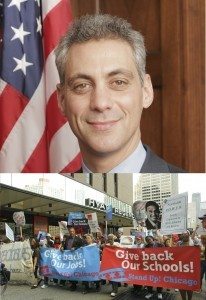

Sometimes you have to just love the California state constitution. It may right now be the one thing protecting us from the chaos inflicted on Chicago, where the largest mass closure of public schools in U.S. history is underway.
You might remember when Antonio Villaraigosa was first elected Mayor of Los Angeles. One of his first ambitions was to become the decision-maker over the L.A. Unified School District, to once-and-for-all improve the city’s schools. He wanted to have the power of other big-city mayors like Chicago’s Emanuel and Bloomberg in New York, mayors who now appoint their school boards and their school superintendents.
These two men, with scant education experience, were sure they could do better than life-long educational professionals. They had been elected to run their cities, not their cities’ schools. But, hey, ambition knows no limits. And with the backing of the multimillionaires of the Gates, Broad and Walton foundations,
» Read more about: School Daze: The Attack on Public Education Continues »


(Lisa Schiff is a member of Parents for Public Schools of San Francisco. Her post first appeared in BeyondChron and is republished with permission.)
A friend of mine emailed me last fall incredibly worried about the impact of potential sequestration cuts on schools and students across the country. He was a long-time Washington D.C.-based public education advocate, so I was simultaneously unshaken and unnerved by his concern. Sequestration seemed like a D.C.-based fear, so unlikely to actually happen given the blowback that would surely come from such imprecise cuts. But my friend’s many years of fighting for resources for children’s education meant that I couldn’t really ignore his concerns, and so his words remained a low-level worry until March 1, when I had to concede that he’d been right all along.
Funding for shared needs like education is always at risk and the past few weeks have highlighted just how great that risk is.